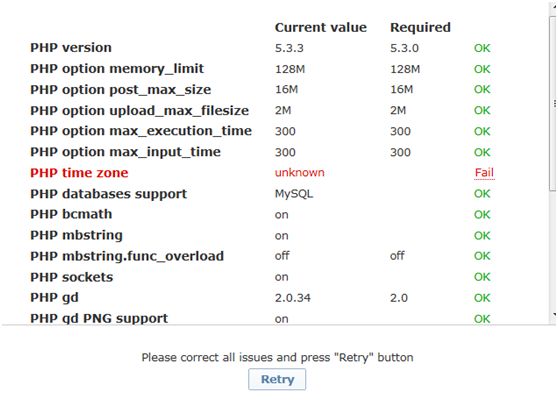系统linux/redhat6.5 zabbix 2.47监控nginx1.8.0 (上)
基本思路:
服务器端(虚拟机1):安装 zabbix-server zabbix_get mysql5.7.9
客户端(虚拟机2):安装zabbix-agent nginx1.8.0
服务器和客户端都是使用redhat6.5搭建的
--------------------------------------------------------------------------------------------------
实验环境:必须能上网,因为要yum和编译安装一些必要的组件
因为是实验环境,所以防火墙iptables,selinux 一定要关闭!!
服务器端和客户端的防火墙iptables,selinux 都要关闭!
重要的事情说三遍!! 如果你是大神,可以此条可以忽略。
[root@server ~]# iptables -F
[root@server ~]# chkconfig iptables off # 开机就关闭iptables
[root@server ~]# setenforce 0
setenforce: SELinux is disabled
[root@server ~]# vim /etc/selinux/config
将SELINUX=enforcing 改为 SELINUX=disabled
服务器端和客户端的防火墙iptables,selinux 都要关闭!
炮制虽繁必不敢省人工,品味虽贵必不敢减物力
----------------------------------------------------------------------------------------------------------------
服务器端的搭建(虚拟机1)
1.配置 epel,163,Zabbix三个网络yum源:
[root@server ~]#rpm -ivh http://dl.Fedoraproject.org/pub/epel/6/x86_64/epel-release-6-8.noarch.rpm [root@server ~]# wget -O /etc/yum.repos.d/CentOS6-Base-163.repo #到这之前都有添加进去,后面网址也要输入进去 [root@server ~]#rpm -ivh http://repo.zabbix.com/zabbix/2.4/rhel/6/x86_64/zabbix-release-2.4-1.el6.noarch.rpm 注意:1.如果你没有wget命令,用epel源 yum install wget就可以下载163的repo了。 2.[root@server yum.repos.d]# pwd /etc/yum.repos.d [root@server yum.repos.d]# ls CentOS6-Base-163.repo epel.repo epel-testing.repo local.repo zabbix.repo CentOS6-Base-163.repo 这个文件最好编辑一下,将$releasever改成6.原因是在redhat6.5上 $releasever 这个变量得到的值是6server 明星在下找不到这个文件夹 baseurl=http://mirrors.163.com/centos/$releasever/os/$basearch/
2.安装必要的包,如果少安装一个,那就等着排错吧 (yum安装完成后,下面会有说明,如果那个包没安装成功,会报错,注意看一下,报错后,重新安装,不行的话,换个yum源)
[root@server yum.repos.d]# yum -y groupinstall "Development Tools" [root@server yum.repos.d]#
3.创建zabbix 用户 (目的:所谓专人专用,防止出现越权行为)
[root@server yum.repos.d]#
4.在mysql中建立zabbix数据库和zabbix用户
初始化mysql5.7.9 ,自己百度哟或者看官方文档,然后启动mysql [root@server yum.repos.d]# service mysqld start
mysql -uroot -p123456 #这是我的数据库密码:123456,不是你的!!!
5. 安装zabbix服务器端并将相关数据导入MySQL数据库中
[root@server yum.repos.d]# yum install zabbix-server-mysql zabbix-web-mysql zabbix_get zabbix-agent root@server yum.repos.d]# cd /usr/share/doc/zabbix-server-mysql-2.4.7/create
[root@server create]# mysql -uroot -p123456 zabbix < schema.sql
[root@server create]# mysql -uroot -p123456 zabbix < images.sql
[root@server create]# mysql -uroot -p123456 zabbix < data.sql
这三个导入的顺序不要颠倒!!不然报错
[root@server create]# mysql -uroot -p123456 mysql> use mysql mysql> delete from user where host='localhost'; mysql> commit; mysql> exit
6.修改zabbix配置文件中关于数据库的部分
[root@server create]# vim /etc/zabbix/zabbix_server.conf 你需要在zabbix_server.conf里面找到下面几项,并且修改成我这样的记得去掉它们前面的#号,不然会被注释掉 ,不起作用的。
DBHost=localhost DBName=zabbix DBUser=zabbix DBPassword=zabbix
7.启动zabbix-server服务和httpd服务
[root@server create]# cd ~ [root@server ~]# service zabbix-server start [root@server ~]# service httpd restart [root@server ~]# chkconfig httpd on #一开机就启动httpd服务 [root@server ~]# chkconfig zabbix-server on #同上
8.启动web界面,继续编辑(不建议使用360安全浏览器,会出问题,其他浏览器应该都可以)
1. 用ie浏览器访问http://ip/zabbix/ #这里的IP是你服务器配置的IP,例如我的服务器IP是
2.172.16.20.23.我就要在浏览器里输入http://172.16.20.23/zabbix .
3.英文看不懂没关系,下一步,下一步,总认识吧
9.哈哈出下面的问题了吧
解决方法:修改时区 vim /etc/php.ini
找到date.timezone=Asia/Shanghai #记得将date.timezone前面的#去掉!!
然后一定要重启httpd 服务:service httpd restart
不重启服务,修改是不会生效的。
安装配置客户端 (虚拟机2)
炮制虽繁必不敢省人工,品味虽贵必不敢减物力
1.配置 epel,163,Zabbix三个网络yum源:
[root@server ~]#rpm -ivh http://dl.Fedoraproject.org/pub/epel/6/x86_64/epel-release-6-8.noarch.rpm [root@server ~]# wget -O /etc/yum.repos.d/CentOS6-Base-163.repo #到这之前都有添加进去,后面网址也要输入进去 [root@server ~]#rpm -ivh http://repo.zabbix.com/zabbix/2.4/rhel/6/x86_64/zabbix-release-2.4-1.el6.noarch.rpm 注意:1.如果你没有wget命令,用epel源 yum install wget就可以下载163的repo了。 2.[root@server yum.repos.d]# pwd /etc/yum.repos.d [root@server yum.repos.d]# ls CentOS6-Base-163.repo epel.repo epel-testing.repo local.repo zabbix.repo CentOS6-Base-163.repo 这个文件最好编辑一下,将$releasever改成6.原因是在redhat6.5上 $releasever 这个变量得到的值是6server 明星在下找不到这个文件夹 baseurl=http://mirrors.163.com/centos/$releasever/os/$basearch/
2.安装必要的包,和安装zabbix-agent客户端
[root@server yum.repos.d]# yum -y groupinstall "Development Tools" [root@server yum.repos.d]#
3.修改agent的配置文件
[root@agent ~]# vi /etc/zabbix/zabbix_agentd.conf 找到#Server= 将它改成 Server=ip #服务器的IP(虚拟机1的IP) 记得将ServerActive=127.0.0.1 注释掉!!!也就是变成###ServerActive=127.0.0.1
4.启动zabbix-agent服务
[root@agent ~]#service zabbix-agent start
5.编译安装nginx-1.8.0
5.1搭建编译环境
[root@agent ~]#yum -y install gcc gcc-c++ autoconf automake make [root@agent ~]#
5.2下载nginx-1.8.0 ,并解压
[root@agent ~]#yum install wget [root@agent ~]#wget #网址也要输入, [root@agent ~]#tar -zxvf nginx-1.8.0.tar.gz [root@agent ~]# cd nginx-1.8.0 [root@agent nginx-1.8.0]# ./configure –-with-http_stub_status_module #模块不默认安装,一点要安装这个模块 [root@agent nginx-1.8.0]# make && make install [root@agent nginx-1.8.0]# cd ../ [root@agent ~]#
5.3 启动nginx,观察现象
[root@agent ~]# /usr/local/nginx/sbin/nginx
nginx启动正常启动后,在浏览器中输出http://本机IP/ 会出现如下画面
5.4 设置开机启动nginx,如果高版本的nginx支持chkconfig nginx on
(或者 chkconfig nginx on )更好了,下面的脚本可以忽略。(可以先试试这个两个命令能否让nginx开机启动)
[root@agent ~]# vim /etc/init.d/nginx
添加如下代码
5.6 修改访问权限
[root@agent ~]#chmod a+x /etc/init.d/nginx #a+x参数表示 ==> all user can execute 所有用户可执行 [root@agent ~]#echo /etc/init.d/nginx start >> /etc/rc.local #利用重定向将/etc/init.d/nginx start 追加到 /etc/rc.local 文件的末尾处
5.7 开启nginx的stub_status模块
查看已安装的 Nginx 是否包含 stub_status 模块
[root@agent ~]# vim /usr/local/nginx/conf/nginx.conf
server {listen 80;server_name localhost;#charset koi8-r;#access_log logs/host.access.log main;location /{root html;index index.html index.htm;}location ~ /status #红字为修改部分{stub_status on;access_log off;#加入访问限制allow IP; #IP=服务器的IP,虚拟机1的IPallow 127.0.0.1;deny all;}}
重启nginx
service nginx restart
nginx status信息
[root@agent ~]# curl http://127.0.0.1/ngx_status
Active connections: 10
server accepts handled requests
9 9 8
Reading: 0 Writing: 0 Waiting: 0
5.8 zabbix客户端配置status
/usr/bin/status.sh
#!/bin/bash
# Functions to return nginx stats
function active {
/usr/bin/curl "http://127.0.0.1:80/status" 2>/dev/null| grep 'Active' | awk '{print $NF}' }
function reading {
/usr/bin/curl "http://127.0.0.1:80/status" 2>/dev/null| grep 'Reading' | awk '{print $2}' }
function writing {
/usr/bin/curl "http://127.0.0.1:80/status" 2>/dev/null| grep 'Writing' | awk '{print $4}'}
function waiting {
/usr/bin/curl "http://127.0.0.1:80/status" 2>/dev/null| grep 'Waiting' | awk '{print $6}' }
function accepts {
/usr/bin/curl "http://127.0.0.1:80/status" 2>/dev/null| awk NR==3 | awk '{print $1}' }
function handled {
/usr/bin/curl "http://127.0.0.1:80/status" 2>/dev/null| awk NR==3 | awk '{print $2}'}
function requests {
/usr/bin/curl "http://127.0.0.1:80/status" 2>/dev/null| awk NR==3 | awk '{print $3}' }# Run the requested function
$1
EOF
5.9 修改权限
位置:cd /usr/bin/
修改status.sh 的权限 和属主:属组
chmod o+x status.sh
chown zabbix.zabbix status.sh
[root@nginx bin]# ls -ll |grep status.sh
-rwxr-xr-x 1 zabbix zabbix 1225 Jan 22 08:13 status.sh
5.10
修改nginx服务器上zabbix客户端的zabbix_agentd.conf配置文件,然后重启zabbix agentd客户端。
vim /etc/zabbix/zabbix_agentd.conf 然后修改和下面一样 LogFile=/tmp/zabbix_agentd.log Server=IP #zabbix server端的IP地址 ServerActive=IP #zabbix server端的IP地址 Hostname=IP2 #本地的IP地址 UnsafeUserParameters=1 ##下面的是新添加进去的key(键值) UserParameter=nginx.accepts, /usr/bin/status.sh accepts UserParameter=nginx.handled, /usr/bin/status.sh handled UserParameter=nginx.requests, /usr/bin/status.sh requests UserParameter=nginx.connections.active, /usr/bin/status.sh active UserParameter=nginx.connections.reading, /usr/bin/status.sh reading UserParameter=nginx.connections.writing, /usr/bin/status.sh writing UserParameter=nginx.connections.waiting,/usr/bin/status.sh waiting
系统linux/redhat6.5 zabbix 2.47监控nginx1.8.0 (下)
http://my.oschina.net/u/2618987/blog/608262

